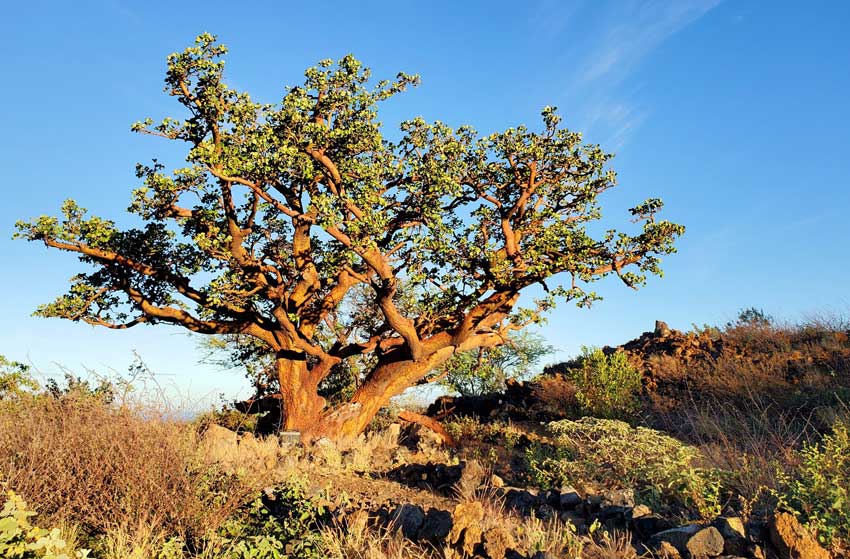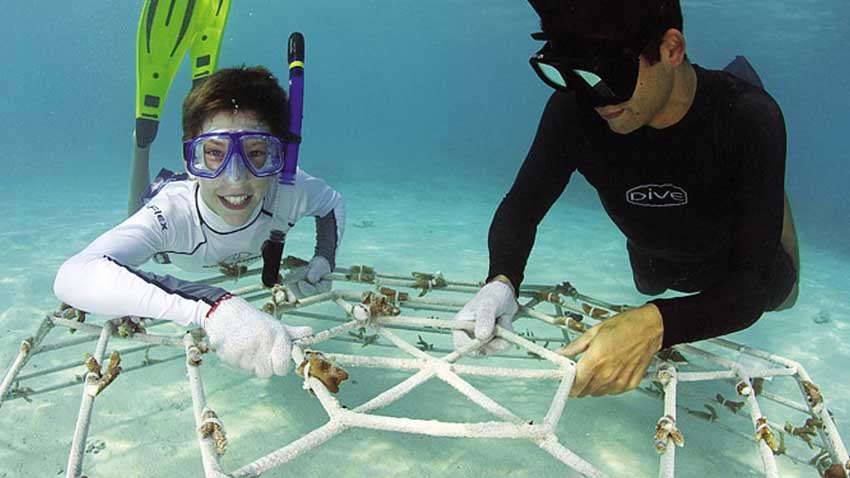
Go World Travel is reader-supported and may earn a commission from purchases made through links in this piece.
As travelers look to the future, sustainable travel is becoming more important. A 2021 report by Accenture found that 86 percent of travelers want to travel more sustainably, but only half have managed to do so.
One way to support sustainable travel is to choose hotels that are doing their part to decrease their environmental impact and protect the environment.

Making Sustainability Commitments
Many large hotel brands have made public commitments to reduce their environmental impact. Travel with Purpose is Hilton’s Environmental, Social and Governance (ESG) strategy which details their commitments to drive responsible travel.
By 2030, they aim to cut their environmental footprint in half. This involves looking at every aspect of the company, from environmental impact tracking to reviewing its supply chain.
Even small steps add up. Today, 88 percent of Hilton’s portfolio participates in soap recycling. Soap has been recycled into 16 million new bars that have been donated to those in need.

Marriott International Sustainability Commitments
Marriott International is also a leader in hotel sustainability. Their Serve360 lays out their 2025 sustainability and social impact goals, both large and small.
Marriott has been replacing single-use plastics in guestrooms, and by the end of 2022, this program will have prevented 500 million tiny bottles from going to landfill.
They have also worked to reduce internal food waste, with a goal of reducing food waste by 50 percent.
The company has planted more than 415,000 trees over the last few years. In 2021, Marriott International announced its goal to reach net-zero value chain greenhouse gas (GHG) emissions by no later than 2050.
Hyatt’s World of Care strategy lays out its 2030 environmental goals, which include increased efficiencies, water conservation efforts, and increasing the use of renewable energy and gray water. Best Western Hotels & Resorts is part of the Stay PlasticLess project to reduce disposable plastic, from water bottles to single-use food products.
As part of its Stay for the Planet initiative, Best Western has reduced its water footprint by 26 percent, and its energy requirements by 17 percent.

Sustainability in Action
While hotel brands work on overall sustainability goals, individual hotels and resorts have put their sustainability goals into action locally. Many tap into the unique needs of their local communities.
The Fairmont Orchid on the Island of Hawaii has partnered with the Waikōloa Dry Forest Initiative to plant more than 100 native wiliwili trees in the 275-acre lowland dry forest. To help promote native forest conservation, guests can volunteer to assist in reforestation efforts on the second and fourth Saturdays of the month.
In Costa Rica, Westin Reserva Concha, W Costa Rica and Reserva Conchal have started an apiary to protect bees, obtain a high-quality product and generate employment for people from neighboring communities.
The project houses about 5 million bees, distributed in 60 hives. The bees pollinate more than 3,000 hectares of forest, contributing to the continuity of the different ecosystems.
In Bali, the Food & Beverage team at Hilton Bali Resort started a “Know Thy Neighbor” project to work with local vendors and producers in more of the hotel’s culinary offerings. The goal is to support small local enterprises while reducing environmental impact by buying local.

Four Seasons Resorts Maldives has a marine conservation team that has spent two decades devoted to Marine Savers, one of the region’s most ground-breaking ocean initiatives working in coral propagation, turtle rehabilitation and manta ray research.
Warming water temperatures in the Maldives have caused massive coral die-offs in recent years. Four Seasons Maldives partnered with local experts on Reefscapers, a successful reef propagation project.
The resort and its guests fund the program. Guests can sponsor their own coral frame (and receive photos of the coral as it grows) or help with the coral propagation project at the resort. The process involves attaching coral fragments onto a coral frame – produced by a local cooperative – to boost existing reef habitats and generate new ones.
So far, the project has deployed over 7,000 coral frames in the sea surrounding the resorts, resulting in 40 thriving species of coral.
It’s just one action among many that are slowly making a difference. As more travelers ask for sustainable travel opportunities, the industry will respond.
“There’s a chance for the travel industry to establish a new way of being where sustainability actions are the norm, not simply the ideal,” says Armando Kraenzlin, Regional VP & GM, Four Seasons Resorts Maldives.
Best Tips & Tools to Plan Your Trip
Inspire your next adventure with our articles below:
- How to Plan a Family Vacation in the Outer Banks - April 5, 2024
- Top 5 Colorado Mountain Towns in Summer - March 22, 2024
- The Magic of the Mekong Delta: From Vietnam to Cambodia by River Cruise - March 6, 2024

